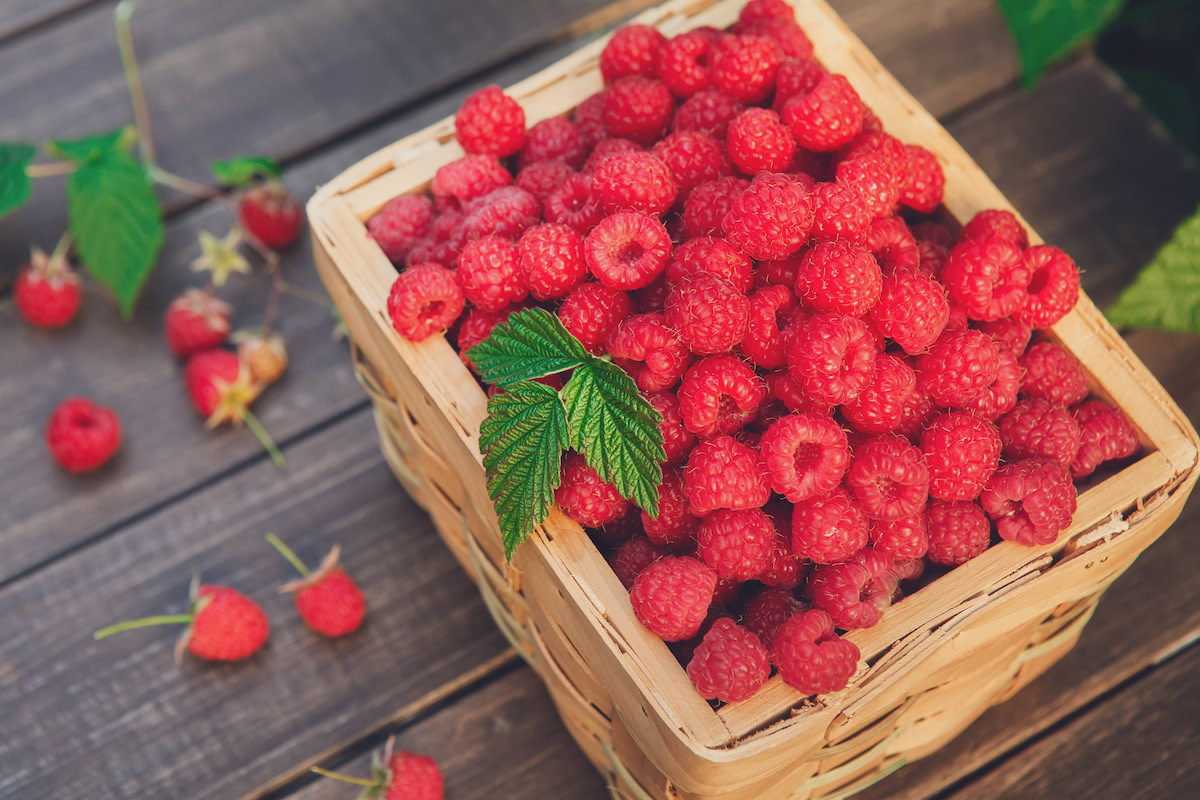Raspberry Companion Planting: What to Grow With Raspberries
Written by MasterClass
Last updated: Jun 7, 2021 • 3 min read
Raspberry bushes are a perennial summer staple that can produce fruit for up to 20 years with routine care and regular pruning. Companion planting can help raspberry bushes thrive by attracting bees, the plant’s primary pollinators, and control soil-borne fungal diseases like verticillium wilt.
Learn From the Best
What Is Companion Planting?
Companion planting is a time-tested gardening method that enriches and protects vulnerable crops. Farmers and gardeners plant specific crops near each other in order to deter pests, attract beneficial insects, and stimulate growth.
What Are the Benefits of Companion Planting?
Companion plants will either help a specific crop grow or will grow better beside a specific crop, and can do many support jobs in the garden:
- Repel insect pests. Cabbage worms, cucumber beetles, Mexican bean beetles, carrot flies, cabbage moths, spider mites are types of pests that can plague vegetable gardens. Many companion plants (like marigold flowers, nasturtiums, catnip, and rue) repel specific pests and should be planted near certain crops to keep them pest-free.
- Attract beneficial insects. Pollinators like bees and ladybugs can use a little encouragement to visit vegetable gardens and pollinate the crops. Gardeners often plant attractive plants like borage flowers to encourage pollinators to visit.
- Improve soil nutrients. When crops grow, they take up valuable nutrients from the soil—leaving the gardener to do a lot of work at the end of the season to renew the soil’s nutrients. However, there are many companion plants (like bush beans and pole beans) that add nutrients like nitrogen back into the soil, helping keep other plants healthy and well-fed.
- Encourage faster growth or better taste. Many companion plants (like marjoram, chamomile, and summer savory) release specific chemicals that encourage faster growth or better taste in the plants around them, leading to quicker and better harvests for home gardeners.
- Provide ground cover. Plants that spread low across the ground (like oregano) serve as a blanket over the soil, protecting it from the sun and keeping it cooler for plants that need it.
- Provide necessary shade. Plants that grow tall and leafy (like zucchini and asparagus) can provide welcome shade for sun-sensitive plants beneath them.
- Serve as markers. When growing slow-growing plants, it can be difficult to tell where the rows will be while you’re waiting for the seeds to sprout. Gardeners often use fast-growing plants (like radishes) interspersed with the slow growers in their rows to delineate where the slow growers will be.
Companion Plants to Grow With Raspberries
Raspberries are planted in early spring, when the soil is warm enough to be workable. Depending on the variety and the region, the growing season for raspberries may last into fall. These plants are often grown along a trellis, leaving plenty of space for beneficial partners. Raspberries also require full sun, though they can successfully grow in partial shade.
- 1. Alliums like garlic, leeks, chive, and onions act as a natural insecticide for raspberry plants, repelling Japanese beetles with their pungent aromas.
- 2. Plant raspberries near chervil to deter squash bugs and ants from fruiting canes.
- 3. Turnips act as a trap crop for the Harlequin beetle, a member of the stink bug family that primarily targets brassicas like broccoli, kohlrabi, and cauliflower but also has a fondness for raspberries.
- 4. Yarrow also keeps Harlequin beetles at bay.
- 5. Just like with blueberries, growing cover crops like grasses and grains on the planting site beforehand is a great way to fertilize the soil and pave the way for successful raspberry bushes.
Plants to Avoid Growing With Raspberries
Raspberries should not be planted alongside nightshades like eggplant, potato, or tomatoes, as they are particularly susceptible to blight and verticillium wilt. Avoid planting raspberries near similar crops like boysenberries, blackberries, or gooseberries to prevent the transfer of soil-borne fungal diseases.
Learn More
Grow your own food with Ron Finley, the self-described "Gangster Gardener." Get the MasterClass Annual Membership and learn how to cultivate fresh herbs and vegetables, keep your house plants alive, and use compost to make your community - and the world - a better place.
